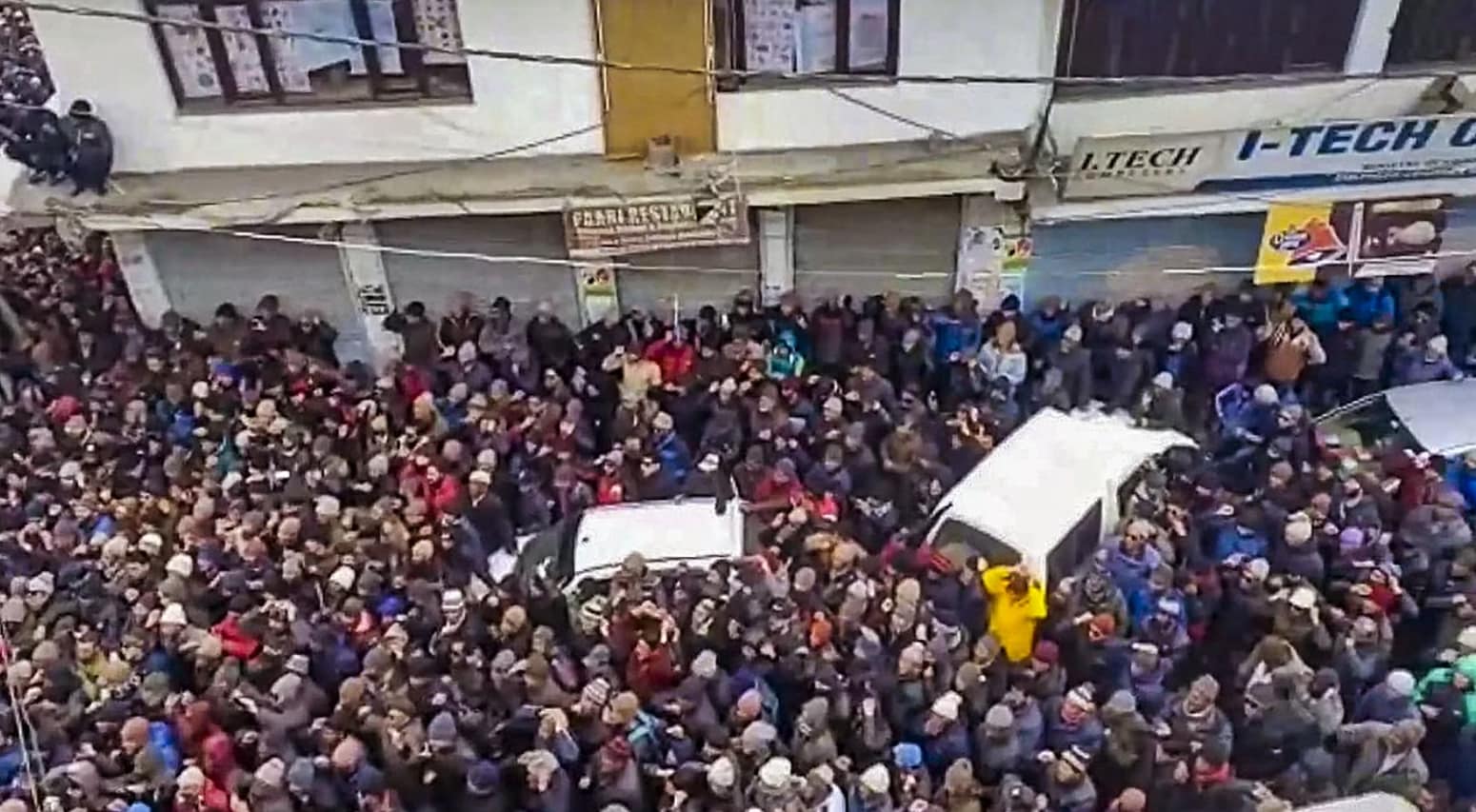Ladakh, the Union Territory in the northernmost part of India, observed a complete shutdown on Wednesday. The strike was called by various religious organisations in Leh following the breakdown of talks on Tuesday. The negotiations were held between the leaders of civil society groups of Ladakh and the Union Home Minister, Amit Shah.
The Leh Apex Body (LAB) and Kargil Democratic Alliance (KDA), representing several social, religious, political, and student organisations of Leh and Kargil, have been demanding statehood for Ladakh. They also seek the inclusion of the Union Territory in the 6th Schedule of the Constitution, restoration of statehood, separate Lok Sabha seats for Leh and Kargil districts, and the setting up of an exclusive public service commission for the high-altitude region.
The 6th Schedule guarantees protections to the land and a nominal autonomy for the country’s tribal areas. However, the Ministry of Home Affairs (MHA) wanted to implement some parts of the 6th Schedule indirectly. The LAB and KDA insisted on its direct implementation besides the restoration of statehood. The deadlock prevailed on the demands of statehood and 6th Schedule.
Educationist and social reformer Sonam Wangchuk, who has been lobbying hard to get the demands of Ladakh accepted by the Centre, observed a fast on Wednesday in protest against the failed negotiations. A rally was also scheduled in Leh.
The discontent is not new as LAB and KDA have been fighting for statehood and safeguards to land rights and jobs for the locals since 2020. The current protests can be traced back to August 2019, when the Centre downgraded J&K from a state to two Union territories – Ladakh and Jammu and Kashmir.
With the Model Code of Conduct (MCC) likely to be implemented in the next 10 days after the announcement of Lok Sabha elections, it is unlikely that any viable solution between the Centre and the Ladakh bodies will arrive soon for the strategically important region.



